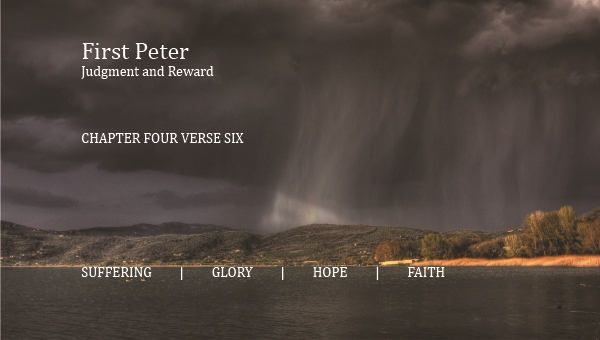By Tyson Thorne

There are some passages of the Bible that are difficult to understand or explain. Verse six raises one such mystery. What does it mean that the “gospel was preached even to those who are now dead?”
There are a number of proposed explanations for this verse, including the following:
- The gospel was preached to those who are “spiritually” dead in sin;
- Those who have heard and believed the gospel and have since died;
- Those who died without hearing and receiving the gospel and are now given a second chance;
- The gospel was preached by Christ to those spirits in prison who disobeyed long ago (3.19) in the time of Noah.
We can start by eliminating the first explanation. While the gospel is preached to the spiritually dead throughout chapters three and four Peter has used the expression “in the flesh” to mean those in this life and “in spirit” to refer to the heavenly realm.
In the same way we can eliminating the third explanation. Why would Peter write an entire letter talking about the merits of suffering in this life for the sake of the gospel if one could forgo all that and be saved in the afterlife?
The second explanation is likely the best. Those who lived for Jesus in life and “judged” by the unrighteous to suffer now live before God and receive their reward. This meaning fits the ideas presented in the rest of the book, and the use of “in the flesh” is consistent with the use of the same phrase in chapter three verse 18.
While the passage in chapter three does refer to those evil beings imprisoned for their role in the deceit of humanity during Noah’s age, no such reference is made here. Since the reference to those spirits is in passing, Peter would be more specific in his reference in chapter four. No such reference exists, but there is plenty of context to help us out.
As we learned yesterday, holiness evokes one of two reactions from non-Christians; they may be astonished by your lifestyle (verse four) or they will judge you by human standards (verse six). Since the second reaction is just as likely as the first we are to expect and even intend to suffer by living according to God’s standards. The good news is that while suffering is a way of life for the believer, eternal life that makes use of our practiced holiness awaits us.
|
|